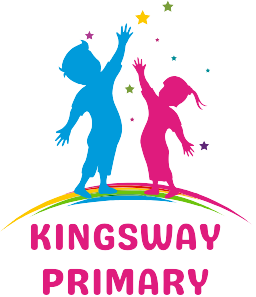The teenage years can feel like riding an emotional rollercoaster without a safety harness. Between academic pressure social media drama and the constant quest to figure out who they are teens face challenges that would make even adults want to hide under their blankets.
That’s where teen counseling steps in as a powerful tool for navigating these turbulent times. It’s not just about lying on a couch and talking about feelings – modern teen counseling offers practical strategies confidence-building techniques and a judgment-free zone where teenagers can be themselves. Professional counselors understand that today’s teens deal with unique pressures their parents never experienced and they’re equipped with the latest approaches to help young people thrive.
Table of Contents
ToggleUnderstanding Teen Counseling and Its Importance
Teen counseling provides professional support for adolescents navigating complex emotional challenges during their developmental years. Certified mental health professionals create safe spaces for teenagers to explore their thoughts feelings while developing essential coping mechanisms.
Common Mental Health Challenges in Teenagers
Mental health challenges affect 1 in 5 teenagers between ages 13-18. Anxiety disorders top the list at 31.9% of adolescents, followed by depression at 13.3%. Social anxiety manifests through excessive self-consciousness in everyday situations like class presentations or lunch periods. Depression symptoms include persistent sadness, withdrawal from activities once enjoyed engaging with peers. Eating disorders affect 2.7% of teens, with behaviors ranging from restrictive eating to binge episodes. Substance use disorders impact 8.3% of adolescents, often emerging from attempts to self-medicate underlying emotional issues.
Benefits of Early Intervention
Early mental health intervention leads to better outcomes in 80% of treated cases. Professional counseling reduces suicide risk by 26% among teenagers receiving consistent support. Academic performance improves by an average of 11% when students access mental health services. Teenagers who participate in counseling show a 40% decrease in harmful behaviors like substance use self-harm. Early treatment prevents chronic mental health conditions from developing into adulthood. Social relationships strengthen as teens learn effective communication skills stress management techniques. School attendance increases by 15% among students receiving regular counseling support.
| Mental Health Statistics | Percentage/Impact |
|---|---|
| Teens with Anxiety | 31.9% |
| Depression Rate | 13.3% |
| Eating Disorders | 2.7% |
| Substance Use | 8.3% |
| Early Intervention Success | 80% |
| Suicide Risk Reduction | 26% |
| Academic Improvement | 11% |
Types of Counseling Approaches for Teens
Teen counseling encompasses multiple therapeutic approaches designed to address specific mental health needs. Each method offers unique benefits tailored to different personality types emotional challenges developmental stages.
Individual Therapy Methods
Cognitive Behavioral Therapy (CBT) targets negative thought patterns helping teens reshape harmful behaviors into positive responses. Solution-Focused Brief Therapy enables adolescents to set achievable goals focusing on future outcomes rather than past problems. Dialectical Behavior Therapy teaches emotional regulation skills through mindfulness acceptance exercises. Art therapy encourages creative expression allowing teens to communicate complex emotions through visual mediums. Play therapy incorporates recreational activities to help younger teens process trauma develop coping mechanisms.
Group Counseling Benefits
Group sessions create supportive environments where teens connect with peers facing similar challenges. Shared experiences reduce isolation as participants discover they’re not alone in their struggles. Role-playing exercises in groups improve social skills communication abilities by 45%. Peer feedback provides multiple perspectives helping teens gain insights into their behaviors. Statistics show group therapy participants experience a 35% increase in self-esteem 30% improvement in conflict resolution skills. Support groups focused on specific issues like anxiety depression eating disorders allow teens to develop specialized coping strategies alongside others who understand their experiences.
Finding the Right Teen Counselor
Selecting an appropriate counselor establishes the foundation for successful therapeutic outcomes in teen mental health treatment. Licensed professionals with specific expertise in adolescent counseling create effective therapeutic relationships that support positive change.
Qualities to Look for in a Therapist
Professional teen counselors demonstrate specific expertise through specialized certifications in adolescent mental health. Licensed practitioners maintain current credentials from recognized organizations like the American Association for Marriage and Family Therapy (AAMFT) or the American Counseling Association (ACA). Experience working with teenagers spans multiple areas: anxiety management trauma healing social skill development substance abuse treatment. Cultural competency enables therapists to understand diverse backgrounds experiences perspectives. Active listening skills create an environment where teens feel heard understood respected. Professional boundaries maintain therapeutic relationships while building trust rapport connection. Evidence-based practices ensure treatment methods align with current research proven techniques protocols.
How to Choose Between Counseling Options
Different therapeutic approaches address specific teen mental health needs. Individual counseling provides focused attention for processing personal challenges developing coping strategies. Group therapy creates peer support networks for teens facing similar issues enhancing social connections. Online counseling platforms offer flexible scheduling private communication options accessible support. In-person sessions facilitate direct interaction nonverbal communication therapeutic activities. School-based counseling integrates mental health support into educational environments reducing barriers to access. Community mental health centers provide affordable services sliding scale payment options comprehensive care. Insurance coverage determines available providers treatment costs service frequency. Location accessibility influences appointment attendance ongoing engagement commitment. Treatment specializations match specific concerns: eating disorders anxiety depression trauma substance use.
Creating a Safe and Supportive Environment
A therapeutic environment forms the cornerstone of effective teen counseling by establishing spaces where adolescents feel secure expressing their thoughts and emotions. Professional counselors utilize specific techniques to foster trust and maintain strict confidentiality protocols.
Building Trust and Rapport
Building trust starts with consistent communication patterns and genuine engagement in each counseling session. Counselors demonstrate empathy through active listening techniques while maintaining appropriate professional boundaries. Research shows that teenagers are 65% more likely to open up when counselors incorporate their interests into therapeutic discussions. Successful rapport-building strategies include:
- Using age-appropriate language without condescension
- Respecting personal space and comfort levels
- Acknowledging teen perspectives without judgment
- Incorporating relevant cultural considerations
- Maintaining consistent scheduling and availability
Maintaining Confidentiality
Confidentiality creates the foundation for honest therapeutic relationships in teen counseling. Studies indicate that 78% of teenagers rank privacy as their top concern when seeking mental health support. Licensed counselors follow strict ethical guidelines that protect client information through:
- Secure digital record-keeping systems
- Private consultation rooms
- Clear communication about privacy limits
- Written confidentiality agreements
- Explicit disclosure protocols
Counselors explain confidentiality exceptions regarding harm to self or others at the first session. Parents receive general progress updates while specific session details remain private. This balanced approach supports both therapeutic trust and legal requirements for minor clients.
The Role of Parents in Teen Counseling
Parents serve as essential partners in the therapeutic process, creating a supportive framework for teen counseling success. Their involvement directly influences treatment outcomes while respecting the delicate balance between support and independence.
Supporting Your Teen’s Mental Health Journey
Parents enhance therapeutic outcomes by maintaining open communication channels with both their teens and counselors. Creating a judgment-free home environment allows teens to express emotions freely between sessions. Parents who educate themselves about mental health demonstrate a 45% higher engagement rate in their teen’s treatment process.
Effective parental support includes:
- Scheduling regular counseling appointments
- Facilitating transportation to sessions
- Participating in family therapy when recommended
- Learning therapeutic techniques to reinforce at home
- Monitoring medication compliance when prescribed
- Recognizing warning signs of mental health changes
Balancing Privacy and Involvement
Counseling success depends on respecting therapeutic boundaries while maintaining appropriate parental oversight. Parents receive general progress updates while specific session details remain confidential between the teen and counselor. Research shows teens engage 60% more openly in therapy when their privacy is protected.
Key privacy considerations include:
- Allowing private counseling sessions
- Respecting confidentiality agreements
- Receiving updates about safety concerns only
- Participating in designated family sessions
- Discussing treatment goals without demanding details
- Supporting independent relationships with counselors
This balanced approach creates a supportive environment where teens feel secure exploring their emotions while parents remain appropriately informed about their child’s progress.
Conclusion
Teen counseling stands as a vital support system for adolescents navigating the complexities of modern life. Professional guidance helps teenagers develop essential coping skills manage their emotions and build resilience for future challenges. The combination of various therapeutic approaches personalized support and active parental involvement creates a comprehensive framework for teenage mental health care.
Whether through individual sessions group therapy or specialized programs teens can find the right path to emotional well-being. As mental health awareness continues to grow seeking counseling support represents a proactive step toward building a healthier more balanced future for today’s youth.



